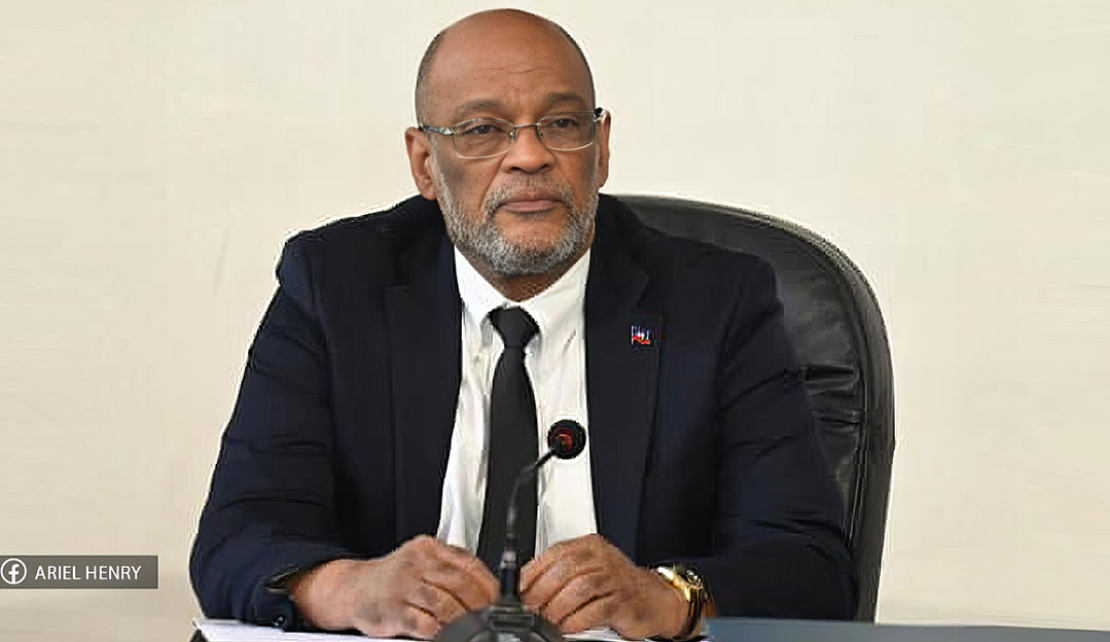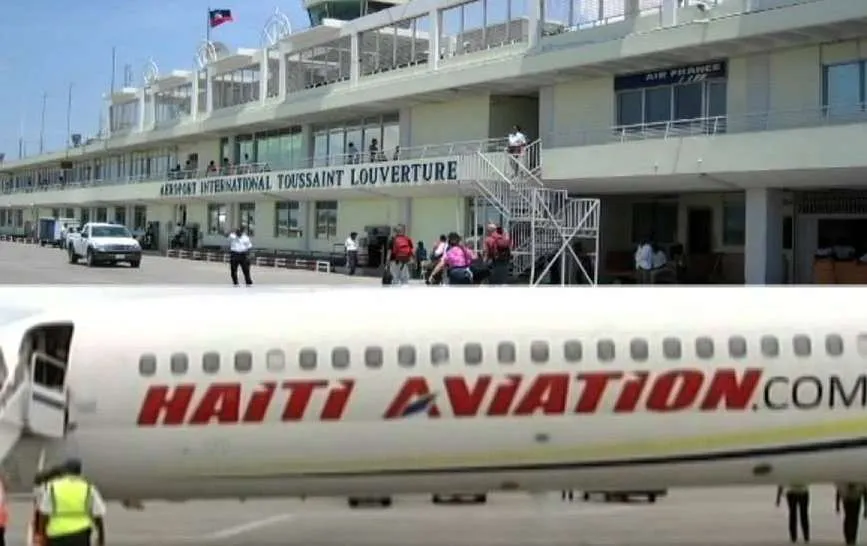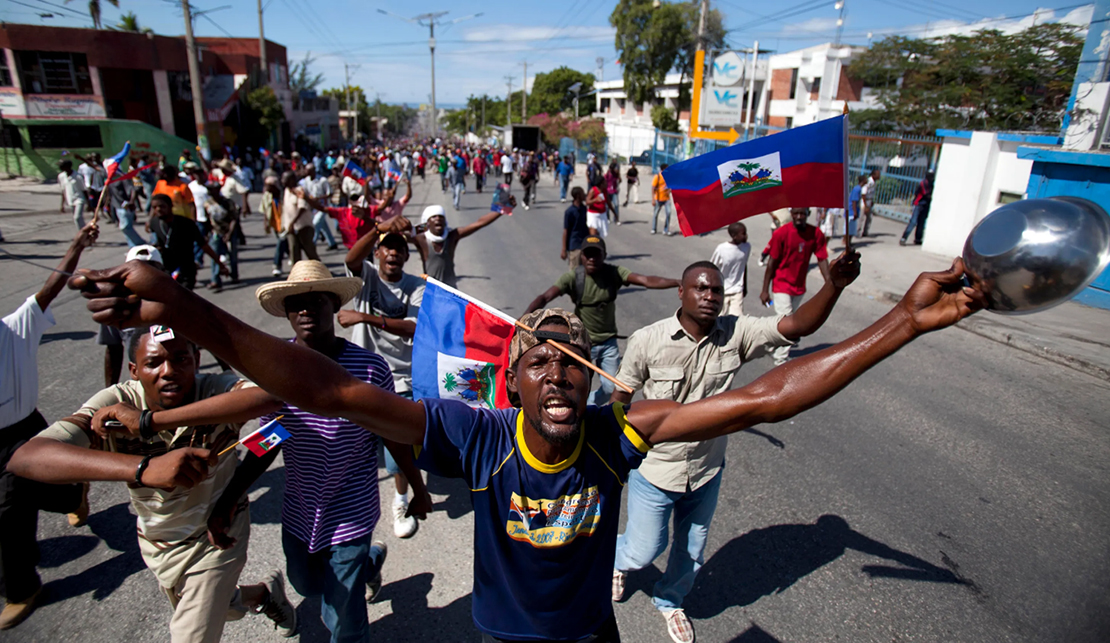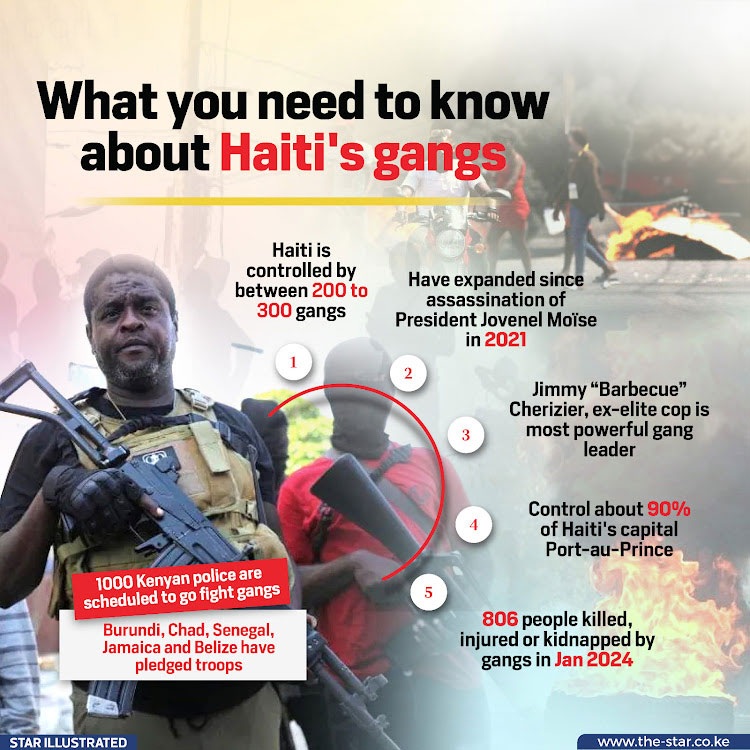HAITI | PM Ariel Henry Exiled in Puerto Rico? Can't return home, Gangs demand his Resignation

MONTEGO BAY, ST. JAMES, March 7, 2024 – In an unfolding narrative of desperation and resilience, Haitian Prime Minister Ariel Henry is ensnared in a perilous quandary. Faced with the ambition of returning to his homeland, he is deterred by the menace of gangs that now dominate the political and social landscape of Haiti.
The Prime Minister has sought refuge in Puerto Rico, a U.S. protectorate, following a harrowing sequence of events that have vividly underscored the deteriorating security situation in Haiti.
Since February 29, gangs have orchestrated a relentless campaign aimed at destabilizing Henry's administration. These coordinated attacks have mercilessly targeted critical infrastructures, including the international airport, police stations, and the nation's principal penitentiary facilities in Port-au-Prince and Croix-des-Bouquets commune.
This meticulously planned upheaval facilitated the escape of nearly all 4,000 detainees housed in the national penitentiary, casting a long shadow over the rule of law in Haiti.
 In a daring move, gangs sought to seize control of the airport in a bid to thwart Henry's return from diplomatic engagements in Kenya, compelling his aircraft to be diverted to Puerto Rico on March 5. The escalating violence since the leap day of February has triggered a humanitarian crisis, displacing at least 15,000 residents of Port-au-Prince and plunging the capital into a state of unprecedented turmoil.
In a daring move, gangs sought to seize control of the airport in a bid to thwart Henry's return from diplomatic engagements in Kenya, compelling his aircraft to be diverted to Puerto Rico on March 5. The escalating violence since the leap day of February has triggered a humanitarian crisis, displacing at least 15,000 residents of Port-au-Prince and plunging the capital into a state of unprecedented turmoil.
Amidst this backdrop of chaos, Haiti grapples with a dire humanitarian predicament. An estimated 1.6 million individuals, representing almost 15% of the nation's populace, find themselves in desperate need of protection assistance in 2024.
The citizens of Port-au-Prince, in particular, confront major protection risks that span the gamut from lethal attacks and crossfire to abductions, sexual violence, and the forced conscription of children into the ranks of armed gangs.
This complex tapestry of violence and displacement highlights the profound challenges facing Prime Minister Henry. While he navigates the intricacies of international diplomacy and seeks solace in Puerto Rico, his heart remains with Haiti, a nation crying out for stability, security, and governance.
The international community watches closely, hopeful for a resolution that can stem the tide of violence and usher in an era of peace and democratic renewal for the Haitian people.
 As Haiti teeters on the brink, the narrative of Ariel Henry is emblematic of the broader struggle faced by nations striving to reconcile governance with the welfare and security of their citizens. It is a poignant reminder of the fragility of statehood in the face of internal turmoil and the relentless pursuit of peace amidst the specter of violence.
As Haiti teeters on the brink, the narrative of Ariel Henry is emblematic of the broader struggle faced by nations striving to reconcile governance with the welfare and security of their citizens. It is a poignant reminder of the fragility of statehood in the face of internal turmoil and the relentless pursuit of peace amidst the specter of violence.
In a grave escalation of unrest that began on February 29, 2024, Haitian gangs have mounted a ferocious and systematic campaign aimed directly at toppling the administration of Prime Minister Ariel Henry. The spate of violence, characterized by well-coordinated assaults, has plunged the nation into a state of chaos.
Key infrastructural nodes and symbols of state authority, notably the international airport, several police stations, and the nation's main penitentiary facilities in Port-au-Prince and the Croix-des-Bouquets commune, have come under siege.
These targeted attacks culminated in the audacious escape of nearly all 4,000 detainees from the national penitentiary, a move that not only demonstrated the gangs' operational capacity but also significantly compounded the security crisis enveloping Haiti.
 In a daring bid to seize control, the gangs laid siege to the airport with the intention of capturing it to block Prime Minister Henry's return to Haiti from Kenya, effectively leaving him in exile. As a direct consequence of this turmoil, Henry's plane was forced to reroute to Puerto Rico on March 5, underscoring the precariousness of his position and the profound instability engulfing the state.
In a daring bid to seize control, the gangs laid siege to the airport with the intention of capturing it to block Prime Minister Henry's return to Haiti from Kenya, effectively leaving him in exile. As a direct consequence of this turmoil, Henry's plane was forced to reroute to Puerto Rico on March 5, underscoring the precariousness of his position and the profound instability engulfing the state.
The relentless violence since the end of February has had a devastating impact on the civilian population, with at least 15,000 individuals displaced within the capital city of Port-au-Prince alone. This surge in violence exacerbates the already dire humanitarian situation in Haiti, with an estimated 1.6 million people, almost 15% of the national population, in desperate need of protection assistance in 2024.
The escalating insecurity has heightened major protection risks, including the threat of death and injury from direct attacks and crossfire, the horror of abductions, the trauma of sexual violence, and the nefarious recruitment of children into armed gangs.
These crises underscore the alarming deterioration of safety and human rights in Haiti, signaling an urgent call for international attention and action to restore order and safeguard the well-being of its citizens.
As Prime Minister Ariel Henry finds himself in a perilous limbo, unable to return to his homeland, the narrative of Haiti's struggle continues to unfold. The country's plight is a harrowing testament to the complexities of governance and security in the face of unchecked gang violence.
The international community, now more than ever, must rally to support Haiti, aiming to reestablish stability, ensure the protection of its people, and pave the way for a democratic and peaceful resolution to the crisis that respects the sovereignty and dignity of this embattled nation.

 En
En  Ar
Ar